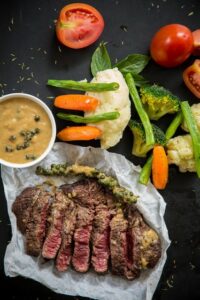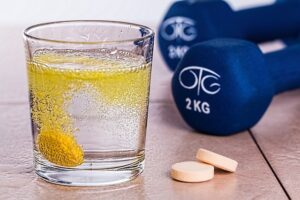The broad topic of sports and working out always has people commenting whether one thing is better than another. Which exercises are the right ones for one period of the season? What about stretching? Exercises play a large part in an athlete’s life, but, in all fairness, exercise is really nothing without a good diet.
Depending on the sport, the athlete’s diet will change and vary. A powerlifter cannot eat the same food that a professional bodybuilder will, not to mention endurance athletes. With that in mind, athletes in training should have different diets in different periods of the year and training schedules. Here are some general tips on what the best diets for athletes should be.
Foods Rich in Proteins

Most athletes will have tough workouts which will leave them depleted and with micro-tears on their muscles. Proteins are an obvious choice for athletes in training. Whether they are animal proteins or plant-based proteins, depending on the athlete’s beliefs and diet choices, any should suffice.
Protein supplements are also recommended, to enhance an already good diet.
Protein supplements are often based on whey, meaning milk. There are other plant-based variants, as well as casein, all of which can be implemented into an already good diet.
For protein-rich food, try anything from chicken and turkey breast to tuna fish, peas, quinoa beans, to dairy products.
Carbohydrates Are Essential
We cannot survive without carbohydrates, but that does not mean sugar. Sugar is pretty bad in general and even worse in an athlete’s diet. Carbohydrates are necessary to maintain the right levels of glycogen in the body, which is required when performing. Endurance athletes are familiar with what is known as carb loading, essentially eating plenty of carbohydrates prior to race day. This makes the body have a larger supply of food for prolonged performance, like a marathon.
Fat Is Not the Enemy
Most people consider fat to be the enemy of their health. There are differences in fats, however. Most people gain weight due to poor nutritional habits which include lots of sugar, which when unconverted into energy, gets stored as fat. Fat in itself is not as bad when taken as a normal part of a healthy diet. Fat is important for our joints, wrists, ankles, and other connective tissue. Fish and many plants, such as nuts, are full of healthy fats. These are essential to make a diet complete.
Supplements – Only After a Good Diet

Supplements are almost essential to an athlete’s professional life. From proteins, amino acids, to recovery drinks, not to mention creatine. An athlete, however, must have an already established diet where supplements will only enhance the diet to make the athlete’s performance as best as possible.
Supplements are not to be used with every type of athlete freely. Endurance athletes have no benefits from creatine while powerlifters and bodybuilders most definitely do.
Endurance athletes do benefit from glutamine and amino acids, all of which can help with recovery.
Every Athlete Must Be Planned for Individually
Not every sport is the same nor is every athlete the same. Discounting food preferences and moral grounds, every athlete will require adaptation in terms of nutrition depending on the part of the year and the training being done. One does not eat the same when doing hardcore strength training compared to endurance training compared to race/match/performance day, depending on the sport.
A nutritionist will have to adapt to each athlete on an individual level.
Nutrition and diets in professional sports are topics that require lots of knowledge as well as the ability to adapt that knowledge to each individual athlete and sport. The following tips should cover the basics of what a professional’s diet might look like.

